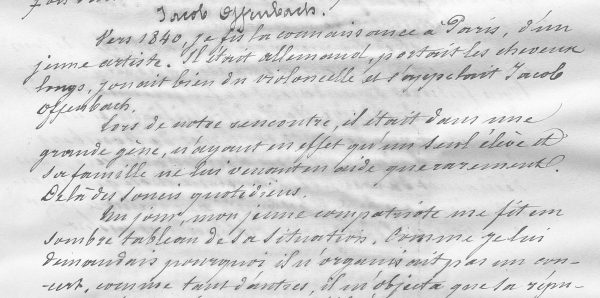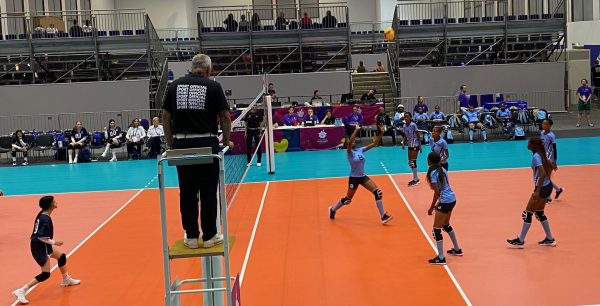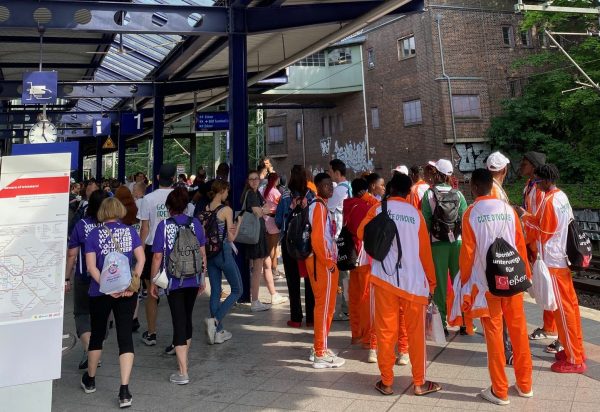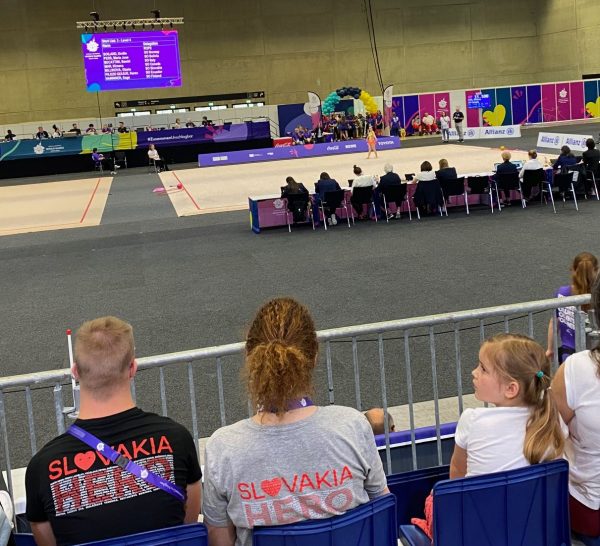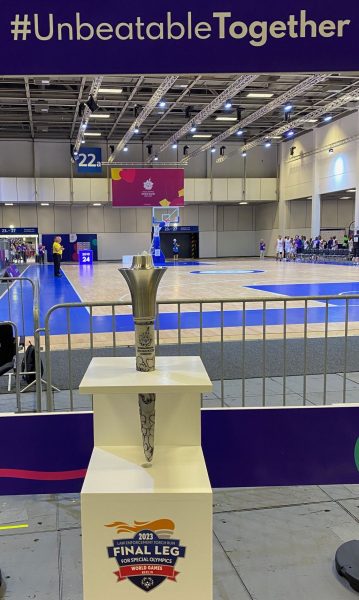In Berlin it is easy to walk through the history of art to up-to-date contemporary art installations. Just walk from the Alte to the Neue and then to the Contemporary Nationalgalerie. With the installation and performance in the monumental Hamburger Bahnhof the artist Alexandra Pirici succeeds in an extraordinary way the combined impression of several art formats. I felt particularly attracted by the sound and resonance that the dancers achieved in the huge historical hall of the former train station. Embedded in a choreography that spans the whole hallway and the top of a sand dune, the ideas of „Attune“ bring in demonstrations of scientific experiments as well. We are reflecting on how structures, biological, physical or geologic processes coexist. It is another example of the intersection of biological, psychological and social phenomena. The links between science and art are more direct than what most people tend to believe. This encompassing experience catches all our senses and our mind. It is very likely that this intense experience in the museum space, which attunes our sensory perception of the artwork, sticks with us for longer than many other pieces of art. The 21st century will reveal an even more powerful language of art as it incorporates even more formats to grab our attention and imagination. The research of how patterns are formed is an important question for social scientists as well. All approaches to the subject are welcome and each one reveals our knowledge gaps despite remarkable progress. (Image: Hamburger Bahnhof, Berlin 2024-5-11, Alexandra Pirici) 
Special 3
The special Olympics (SOWG) are competitive games just like other Olympic Games. The athletes compete with all it takes to win. Some with more success than others, as usual. The disciplines of Volleyball and Basketball give an advantage to mostly tall persons. Few exceptions are created by good team play. The warming-up exercises were already a challenge for the athletes preparing them very well for the match to come. Once in the game, all concentration is focused on the sport. Extraordinary athletes are no exception to the rule. There competition succeeds to get or to keep persons focused on the specific task.
In rhythmic gymnastics the musical talent is asked to complement the physical effort. Gracious moves, difficult with a ball, ring or rope need to be coordinated to the rhythm of the music. Great to see the special athletes live up to the challenge, too. The roaring applause in the sports hall is surely encouraging them to continue on their athletic trajectory. The special athletes encourage everybody to keep exercising to make the most of our capabilities. Thanks for the lesson.
Additionally, in a hall next to the SOWG non-competitive games were presented as an accessible form of fun exercises that invite everybody to move and enjoy. Just being together and moving together is the basic form of happiness. Even having fun is exhausting after a long day and still lots to do in Berlin for all the teams on their way back to the hotels. sowg video
sowg video basket1.
Special
We all value special skills and specialists. In Berlin is a whole week devoted to the special event of the #SOWG. These are the special Olympics world games. Berlin is booming with special people all around. Already the arrivals of the athletes to Berlin tests the public transport system as much as private infrastructure to welcome persons with special needs. Rather than the waste that is produced for normal Olympic games the same incredible amounts of money should be devoted to make cities more welcoming to special people every day. We have become as societies so used to speed up things as much as we can that we have forgotten the value of allowing people to live their lives with their own speed and rhythm. Looking at the huge numbers of private sponsors for the SOWG it becomes obvious that many people care to support these special people on their journey. I am more willing to pay taxes for such efforts than the public money wasted for football, like TV-rights or stadium buildings. The joint experience of love and joy with these extraordinary persons makes us all happy and rich. Happiness is the new “wealth of nations”. Inclusion brings happiness to more than just the normal. We wish you all a happy #SOWG. The 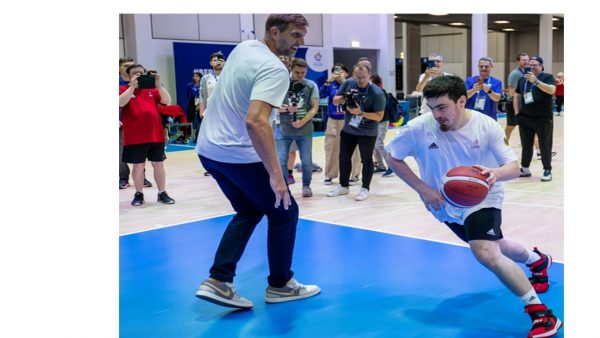 stars are you.
stars are you.
Flotow Offenbach
Erstmals in der Zeitschrift „Opérette“ (2012, No.164, S.53-57) erschienen, hat Dominique Ghesquière eine verschränkte Biografie von Flotow und Offenbach veröffentlicht. Die deutsche Übersetzung ist von Peter Hawig in den Emser Heften Nr.353 (ISSN 1436-459X) erschienen. In interessanter Weise wird das diplomatische Geschick, sich von kleinen Aufführungen in größere Häuser hoch zu arbeiten, von Flotow erfolgreich praktiziert zum Asset für beide Komponisten. So war der damalige Weg zum professionellen Musiker insbesondere auch zum erfolgreichen Komponisten. Flotows erste komische Oper „Pierre et Cathérine“ wurde bereits 1832 im Hôtel Castellane (Rue du Faubourg Saint-Honoré 112) aufgeführt. Ein Vaudeville mit Gesangseinlagen „Le Comte de Charolais“ wurde im Théâtre du Palais-Royal 1836 zur Aufführung gebracht. In seinen Erinnerungen schreibt Flotow kurz nach dem Tod von Offenbach, dass er Jacob (erst nach Konvertierung Jacques) schon 1838 als Cellist kennenlernte. „die Runde durch die Salons war die Kunst, akzeptiert zu werden. Es war in erster Linie die Nagelprobe des echten Talents und der Virtuosität, gleichzeitig aber auch die des Dienermachens, der geschickt genutzten Gelegenheiten und schließlich des Erfolges. Jacob nahm also sehr gerne an, als sein Freund ihm vorschlug, ihn dort einzuführen, wo er selbst gern gesehen war.“ (S.7,9). Für diese Soirées schrieben beide Neukompositionen, die in 2 Serien erschienen sind. „Les chants du soir“ und „réveries“. Für Flotow war eine weitere Bekanntschaft mit Friedrich Wilhelm Riese (pseudonym W. Friedrich) in Paris bedeutend. Letzterer schrieb das deutschsprachige Libretto zu Stradella, der Flotow Oper, die dann erfolgreich 1844 in Hamburg uraufgeführt wurde. Wechselseitige Beeinflussung der beiden Komponisten wurden vielfach besprochen, jedoch sind keine wirklich belegt. Lediglich in den „Bouffes-Parisiens La Romance de la rose“ hat Offenbach eine direktes Zitat aus Flotows irischer Melodie von Thomas Moore „Die letzte Rose“ verwertet und parodiert. Solche Anlehnungen, wie Flotows an die irische Melodie waren und sind auch heute noch gängige Praxis in der Komposition, durchaus mit Rechtsstreitigkeiten heutzutage. Während Flotow bereits 1848 recht solide etabliert war, musste sich Offenbach noch weitere Erfolge erarbeiten. Das hat sich in den Jahren um 1870 bereits ausgeglichen. Flotow’s Oper „L’ombre“ (Der Schatten) hatte die Premiere in der Opéra-Comique kurz vor Kriegsausbruch, wurde dann 1871 im Salle Favart erneut gespielt (S.24). Beide Komponisten haben sich gegenseitig inspiriert und in gewisser Weise voneinander profitiert. Klassik populär machen, ist beiden gelungen und die wechselvollen deutsch-französischen Biografien eine beispielgebende, positive wechselseitige Befruchtung. 